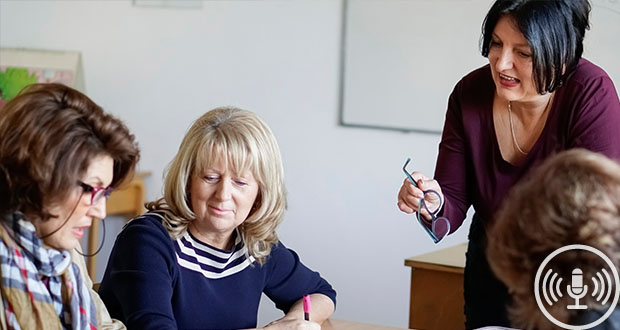Teachers could be forgiven for approaching professional learning with a degree of ambivalence. With unrelenting administrative tasks, classroom teaching, preparation and marking, there is always the risk that such learning becomes an encumbrance, a "tick-the-box" registration requirement rather than the critical development tool it is.
While many one-off sessions can be useful – in learning a new digital tool, for example – engaging teachers in more targeted, continuous and evidence-based projects is likely to yield great results in terms of teaching practice and student achievement.
One of the best ways of achieving this is to foster more collaboration between universities and school communities. According to Macquarie University Professor Mary Ryan, much professional learning in the past has lacked "a holistic, evidence-based practice approach". Through analysing "small data" like school assessment and "big data" such as standardised tests, teachers can often see improvement, but pinpointing the specific practices that have caused it requires more rigorous observation and analysis.
Take, for instance, this simple professional learning scenario. A Year 6 teacher attends a session on improving students’ spelling skills. Without a system to collect and analyse the effects of the session on teaching practice and student achievement, the teacher will have little idea of what specific practices have made a difference. Simply put, too many "puzzles of practice" exist.
Enter the university sector. With their wealth of research knowledge, practical experience and passion for project design, academics are well-placed to assist classroom teachers in understanding their learners' needs and developing a suitable professional learning project. In doing so they will draw on not only the assessment data above but the wider body of academic research that teachers have little time to access and divulge. In Professor Ryan's words, academics will be able "to curate the research evidence for teachers" and help them design project models that suit their learning contexts.
If professional learning is to remain a critical part of the ongoing development of teachers, more meaningful, ongoing and evidence-based projects between universities and schools are required. Education Review spoke to Professor Ryan about the need for purposeful and measurable professional learning in education and ways this could be realised.
Do you have an idea for a story?Email [email protected]
 Education Review The latest in education news
Education Review The latest in education news
